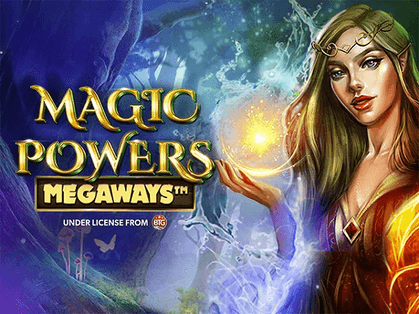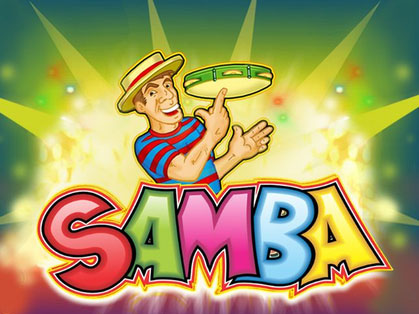Breaking Down the 2023 Actor and Writer Strikes
Forget the Avengers, the writers and the actors are assembling.
After the Writers Guild of America officially went on strike May 2 following six weeks of failed negotiations with the Alliance of Motion Picture and Television Producers (AMPTP), the Screen Actors Guild-American Federation of Television and Radio Artists (SAG-AFTRA) is poised to join the picket line.
Despite an 11th hour extension, the union did not reach a deal with AMPTP when the contract expired on July 12, leading the union to vote unanimously to recommend the actors to strike against the film and television industry for the first time since 1980.
"SAG-AFTRA negotiated in good faith and was eager to reach a deal that sufficiently addressed performer needs," guild president Fran Drescher said in a statement, "but the AMPTP's responses to the union's most important proposals have been insulting and disrespectful of our massive contributions to this industry. The companies have refused to meaningfully engage on some topics and on others completely stonewalled us."
photosRenewed and Canceled TV Shows 2023 Guide
So it's go time, or as Devon Sawa put it in a July 13 tweet, "Which one of you lucky writers wants me down on the line with them the baddest? I'm bringing cake."
Here's everything you need to know about the dual strikes and how they will impact Hollywood and your viewing habits:
Jose Perez/Bauer-Griffin/GC Images
What is the Writer's Guild of America?
In short, the people responsible for keeping you up every night as you binge your favorite series. Referring to two unions—the Writers Guild of America, East and the Writers Guild of America, West—the WGA represents all the comedic and dramatic wunderkinds who work in television and film.

Their job is to negotiate with the Alliance of Motion Picture and Television Producers, which represents large production houses like Disney and streamers like Apple+ and Netflix.
Trending Stories
1
Jennie Garth Briefly Addresses Dan Schneider & Costar Amanda Bynes
2
Why Paris Hilton and Carter Reum Don't Share Photos of Daughter London
3
Travis Kelce Reveals His Not-So-Cruel Summer Plans With Taylor Swift
Why did the writers vote to authorize a strike?
Every three years, the WGA works with the AMPTP to negotiate a new contract that is then authorized by its membership. With weeks of talks getting nowhere, the WGA overwhelmingly voted to authorize a strike as a way of bargaining with the AMPTP if they couldn't reach an agreement before their contract expired May 1.
Among the many issues at play: Money, because it turns out you can't actually dine out on the fact that you have a cool job working on a show, like, Succession or Yellowjackets.
Residuals—the money paid to the people who helped write, produce and appear in a piece of media when it's re-aired—make up a hefty portion of a writer's salary. And they've been largely affected by the explosion of streaming services.
Allow writer Michael Jones-Morales to explain: "The WGA contracts that currently exist were built upon a model where the content providers generated the revenue through ad sales. So, if I write an episode of television that re-airs over and over and over again, every time that episode re-airs, the content provider generates revenue and a little piece of that revenue gets shared with everyone that contributed to the creation of itคำพูดจาก เว็บสล็อต. Now, their revenue is made almost exclusively through monthly or annual subscriptions. So there is no re-airing, people can watch what they want when they want, which means we're not getting the same residuals."
In other words, noted Abbott Elementary scribe Brittani Nichols, while she pockets $13,500 when an episode of the ABC series is replayed on network TV, when it hits Hulu and Disney+, "the amount that you're paid for that episode being on new media—streaming—is $700."
Another sticking point is something called mini rooms, which as the diminutive name suggests, is the same as a writers' room—but with fewer writers and less time to work.
Instead of splashing out to staff a full writers' room, Jones-Morales explained to More Perfect Union, "Increasingly, they are saying, 'You know what? Let's not spend those millions of dollars on a pilot. Let's spend significantly less money on a number of mini rooms where we will hire a smaller number of writers per project and we will order two or three or four or however many scripts without actually shooting any of it. And then we can look and read those scripts."
The problem, said TV writer Danny Tolli, "The streamers were only going to pay weekly compensation to all writers, regardless of level. So you could be a co-executive producer with 10 years of experience who might have sold some development, so you have a proven track record—you could be making the same as a staff writer who, this is their very first job."
Bottom line, said Jones-Morales: "It is absolutely undeniable that the streaming platforms are generating mountains of money through their subscription base. What they're choosing to do with that money is an entirely different question."
Jose Perez/Bauer-Griffin/GC Images
Why am I hearing about AI?
The WGA has also proposed restrictions on production houses using AI to generate or adapt writers' creations into scripts. The AMPTP's counter was to have "annual meetings to discuss advances in technology," which is not exactly a guarantee that we won't one day be watching television literally created by robots. And, as Quinta Brunson quipped in one of the wittier strike signs, "AI Can't Write Tariq's Raps."
Jose Perez/Bauer-Griffin/GC Images
Wait, the actors are striking, too?
Because the contract between the Screen Actors Guild-American Federation of Radio and Television Artists and the studios also expired this year. And while the actors haven't been on strike since 1980, talks haven't been looking promising for awhile.
Negotiations went past the set June 30 deadline and sailed through the July 12 extension. And, like the writers, unionized actors voted overwhelmingly to authorize their leaders to call a strike if no deal was reached. By July 13, they had unanimously voted to strike.
More than 300 bold named stars like Meryl Streep, Jennifer Lawrence and Bob Odenkirk signed a letter to negotiators emphasizing their willingness to strike, saying they are "ready to make sacrifices that leadership is not."
What do the actors want amid the strike?
SAG-AFTRA has the same basic complaints as the writers, because not every one of their more than 160,000 members are pocketing eight figures per project and many are quite affected by the shift to the streaming model.
Also, like the writers, actors have fears about the wild, wild west of unregulated artificial intelligence, with SAG-AFTRA writing in one memo to members that its ability to recreate performances is "a real and immediate threat."
Jose Perez/Bauer-Griffin/GC Images
Okay, how does the writers' and actors' strike affect me?
It doesn't—unless you like watching television and movies. The first two-union strike in the industry in more than six decades would lead to a huge loss in revenue (the 100-day writers' strike that stretched from 2008 into 2009 cost $2.1 billion to California's economy alone) and enjoyment with no new scripts being created and a whole slew of TV series pressing pause on production.
To find out if your favorite shows will be impacted, keep reading.
